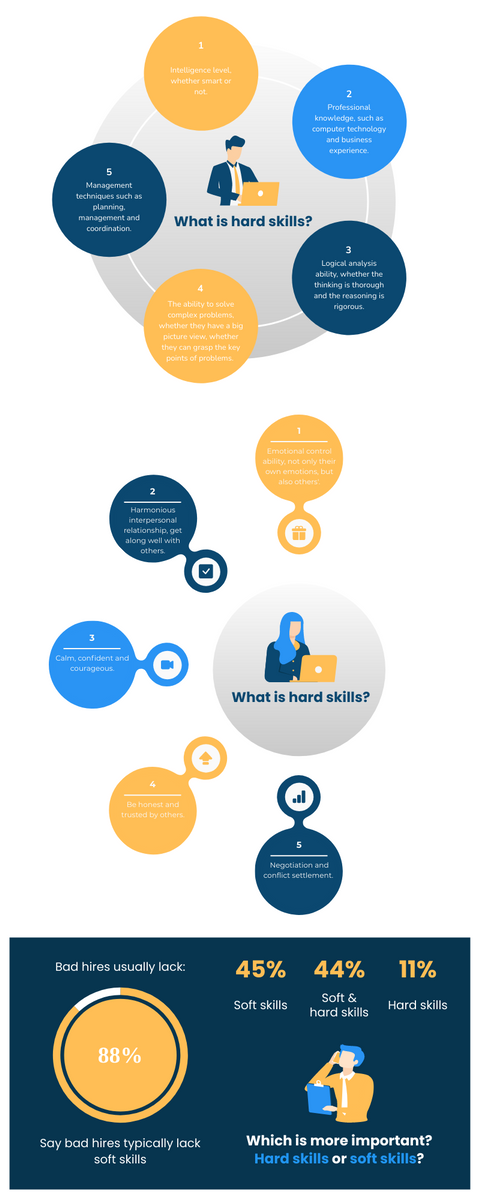Which is more important? Hard skills or soft skills?
Hard Skills
Like computer hardware, they are external, visible to everyone, or easily felt, for examples:
- Intelligence level, whether smart or not;
- Professional knowledge, such as computer technology and business experience;
- Logical analysis ability, whether the thinking is thorough and the reasoning is rigorous;
- The ability to solve complex problems, whether they have a big picture view, whether they can grasp the key points of problems, etc.
- Management techniques such as planning, management and coordination.
Generally speaking, there are two main aspects of hard skills: intellectual level and professional skills, which are commonly referred to as “getting things done”.
Soft Skills
Similar to software, they are internal, invisible and uncertain. It is intangible and perceptual. It needs to be based on a high degree of experience and a focus on practical skills, for examples:
- Emotional control ability, not only their own emotions, but also to control the emotions of others;
- Harmonious interpersonal relationship, get along well with others;
- Calm, confident and courageous;
- Be honest and trusted by others;
- Negotiation and conflict settlement.
There is basically no technical component to soft skills, and there are no standard methods. Everyone has their own routine, which is often called the “being human” aspect.
So Which Is More Important? Hard Skills or Soft Skills?
Some software company interviews focus on hard skills, usually require candidates to answer complex questions and complex algorithm questions. They believe that hard skills are basic, easy to measure, and easy to judge whether they add value.
However, hard skills are easy to improve, while soft skills are hard to master. The level of hard skills determines whether a person can complete a task; Soft skills determine a person’s potential to achieve a certain career.


